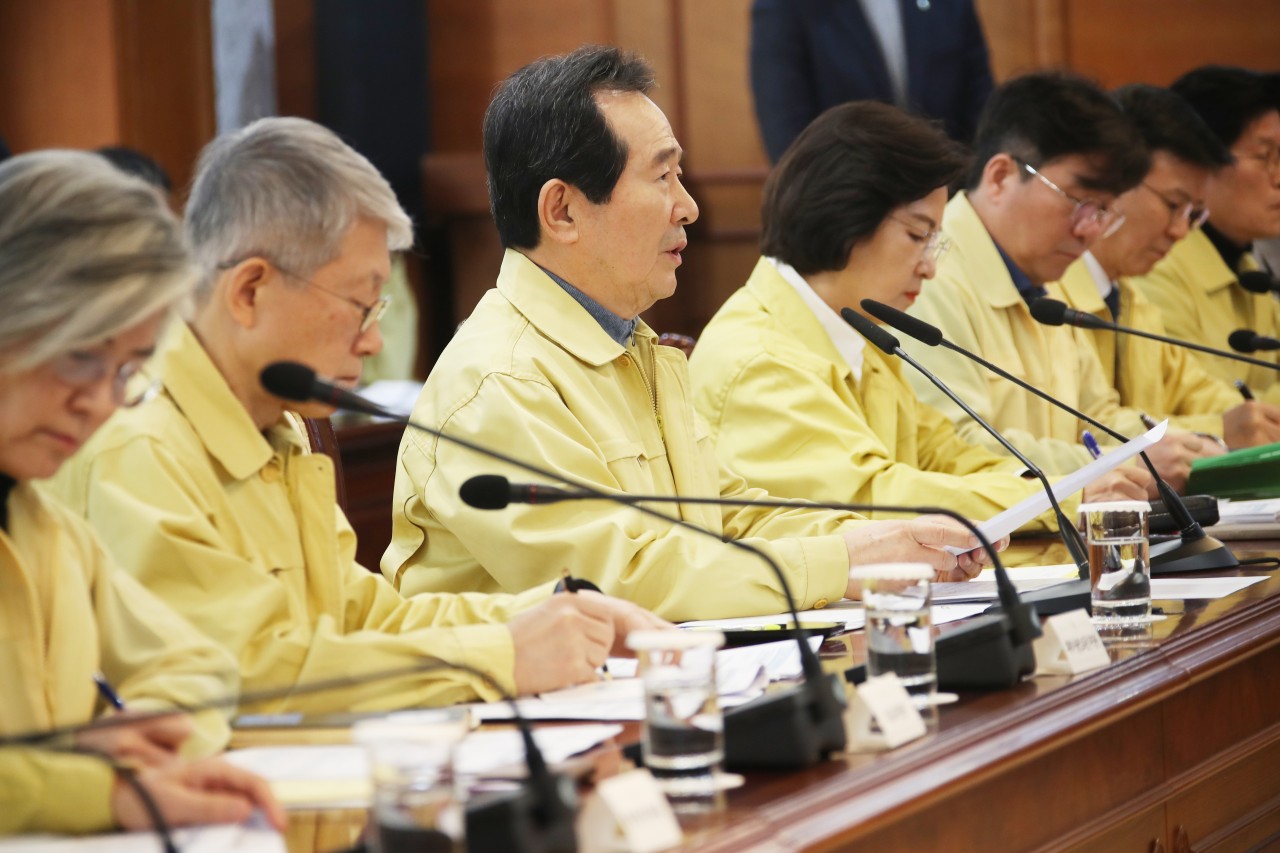
South Korea will bar entry to all foreign nationals who have been in China’s Hubei province in the past two weeks, following a wave of countries imposing drastic travel bans as fears of the new coronavirus mount.
The restrictions, announced by Prime Minister Chung Sye-kyun on Sunday after the country reported a 15th case, will go into effect Tuesday.
All foreigners who have visited the Chinese province, the epicenter of the deadly virus, from Jan. 21 will be subject to the entry ban, which will last for an unspecified period until incidence of the disease drops off.
The government will consider later whether to expand the measure to other parts of China, Health Minister Park Neung-hoo said in a briefing.
Meanwhile, Korean nationals entering from virus-hit Hubei will be required to quarantine themselves at home for two weeks.
The government will limit entry from China by tightening the issuance of entry visas to those with Chinese passports and suspending short-term visas for travel.
Seoul has also raised the travel advisory level for all of China one notch higher to “red alert,” second-highest in the country’s four-tier system, and recommended that its citizens evacuate the country.
Koreans will be prohibited from visiting China for tourism. The government will also minimize flights and ferries between China.
All people arriving from China have to go through a separate immigration line, and will be cleared to enter after confirming their contact information and local residence.
In addition, the visa-free program for foreign travelers to the southern resort island of Jeju will be temporarily suspended. Chinese nationals accounted for 98 percent of all foreign visitors to the island without visas last year, and a Chinese woman who visited Jeju recently has been diagnosed with the virus.
“We have to block the virus transmission path across local communities even more tightly,” said Chung. “Everyone that came into contact with those affected, both in close contact and general contact, must be self-quarantined.”
People who break the self-quarantine rule could be fined up to 3 million won ($2,508).
Those who have returned from China and are working at public facilities, medical institutions and caregiving services -- such as day care centers, kindergartens, schools and hospitals -- are to take leave for 14 days. The government said it will provide living expenses and paid vacation if necessary.
The US, Australia and Singapore announced they are temporarily barring entry to all foreign nationals from mainland China, leading a growing list of countries imposing drastic travel bans on the world’s most populous country. Japan imposed a 14-day travel ban on foreigners arriving from Hubei province, of which Wuhan is the capital. Both Vietnam and Italy have halted all flights to and from China, with Italy becoming the first European Union country to do so.
As more countries closed their doors to China, citizens here have called on the Korean government to do the same. As of Sunday afternoon, more than 650,000 Koreans had signed a petition calling for an entry ban on travelers from China, as the number of confirmed cases here increased. Korea marked 15 confirmed cases, up three from the previous day.
The death toll from the virus, which is officially called the 2019 novel coronavirus or 2019-nCov, now stands at 304 in China and one in the Philippines, which recorded the first death outside China. Around the world, it has infected around 14,000 people in 27 countries, having spread faster and wider than the virus associated with the severe acute respiratory syndrome, another coronavirus, which emerged in 2002 and 2003.
With the outbreak showing no signs of abating, Korea completed its repatriation of 700 Korean nationals on a chartered flight from Wuhan on Saturday, joining the US, Japan, France and India in a widening evacuation drive. The returnees went into a two-week quarantine here.
Korea’s decision to impose restrictions on travel from China could risk angering China, which had asked Korea and other countries to follow the WHO’s recommendations and refrain from restricting travel or trade.
Addressing such diplomatic concerns, Foreign Minister Kang Kyung-wha dismissed the idea that conflicts would ensue and said the ministry was communicating well with the related Chinese authorities about the latest measures.
By Ahn Sung-mi (sahn@heraldcorp.com)



















![[Today’s K-pop] Treasure to publish magazine for debut anniversary](http://res.heraldm.com/phpwas/restmb_idxmake.php?idx=642&simg=/content/image/2024/07/26/20240726050551_0.jpg&u=)